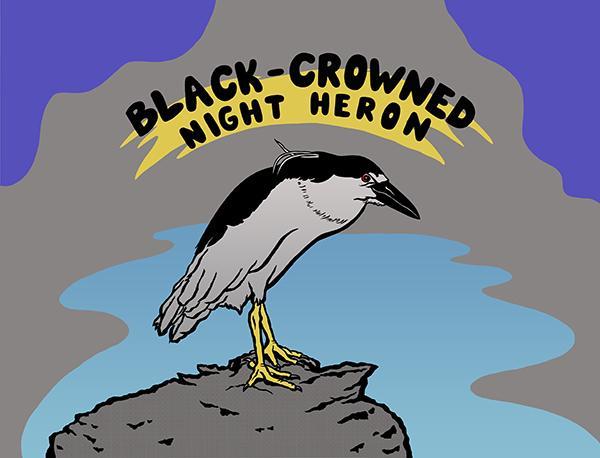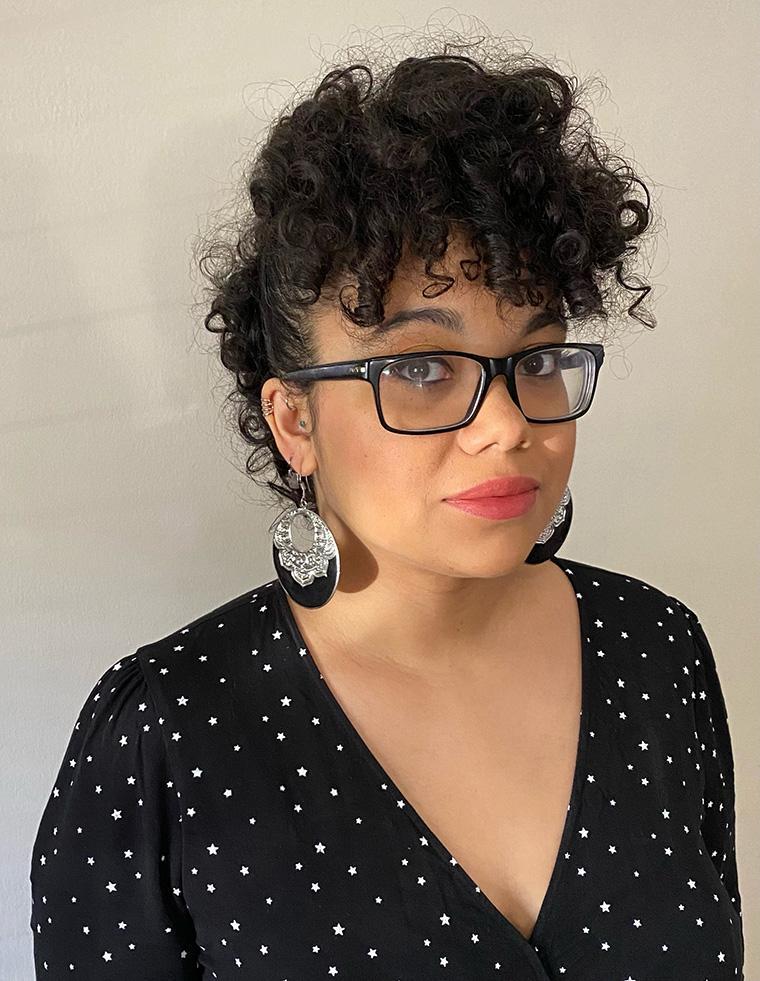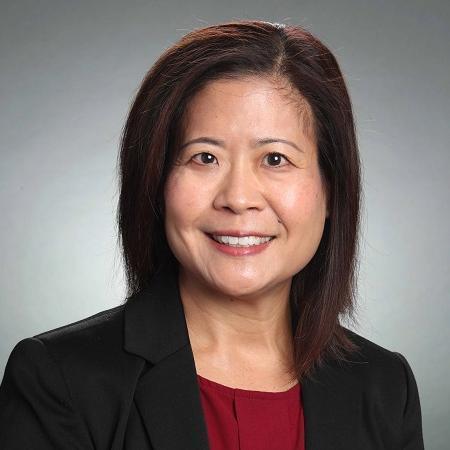| Trouble viewing this email? Read it online. |

| March 12, 2021 | Submit a Note |
|
Greetings in the last week of winter quarter remote instruction, what a marathon it has been! I am inspired by the tremendous work our faculty are doing. First, I’d like to congratulate Brody Sandel (Biology) who received a substantial NSF CAREER grant for his work on grassland ecosystems, as well as Anna Sampaio (Ethnic Studies), Rich Barber (Physics), and Elsa Chen (Political Science) who received grants for projects they are working on. You’ll find details of each in today’s issue. I’d also like to recognize the fifteen faculty from nine departments in the College who have received grants from the Ignatian Center for Jesuit Education. Their projects, many of which are interdisciplinary, are taking steps towards making SCU an anti-racist institution, they are looking into many issues around social justice, and are creating spaces for community wellness at Santa Clara. Thank you for doing this work, which is truly reflective of Jesuit values and will have tremendous benefits for our community. On another note, our colleagues in University Marketing and Communication are starting to look for standout seniors to profile this spring, as part of their digital celebration of the Class of 2021. Please take a second to recommend any students who you think would make a compelling feature. Thank you all for your steadfast commitment to your students and colleagues. Daniel
Highlights

Last chance! Several prestigious student awards in the College have an application deadline of March 15. Faculty in the sciences -- please speak to eligible students and motivate them to apply for the Beckman Scholar, ALZA Scholar, or De Novo Fellow awards. Details to these and other student funding opportunities can be found via the REAL Application dashboard. Feel free to contact Katy Korsmeyer with any questions.

As part of her residency at the Kala Art Institute in Berkeley, CA, Jessica Eastburn (Art & Art History) worked on a project that entailed creating a series of silkscreen prints. The prints illustrated shorebirds of the Bay Area, which is an area of interest in her research. Midway through the project, she sustained a shoulder injury which left her unable to screenprint for a time. She pivoted to creating her images digitally, using Kala’s digital studio. Her revised project was to create her print series as digital images which she would then have professionally printed for an edition. Unfortunately, her residency ended right as the COVID-19 pandemic was beginning and everything shut down. The enormous changes that have come along with the pandemic have meant that completing this print edition has been temporarily put on hold, but she does plan to return this summer. The experience of working digitally for her residency has led her to incorporate digital tools into her teaching during the pandemic as well. Students have reacted positively to this change, telling her that they appreciate the detailed and specific feedback she can now give on their artworks.

Sreela Sarkar (Communication) just published a chapter in the edited collection Your Computer is on Fire (MIT Press). The book has been trending as number 1 in New Releases in Human-Computer Interaction and History of Technology on Amazon in addition to other categories. “This book trains a spotlight on the inequality, marginalization, and biases in our technological systems, showing how they are not just minor bugs to be patched, but part and parcel of ideas that assume technology can fix—and control—society.” Sreela’s chapter "Skills Will Not Set You Free" is based on extensive field research in New Delhi. She read from her chapter at the book launch by MIT Press on March 9. Additionally, she is the speaker for the prestigious STS colloquium series at the University of British Columbia this month.

Home is Where You Queer Your Heart, an anthology of queer and trans writers exploring how to language home and homesteading in contemporary America, released March 2nd. Co-edited by Miah Jeffra (English), Arisa White, and Monique Mero-Williams, the anthology was featured as the top pick for March's most anticipated books by Lambda Literary.

Danielle Morgan (English) gave the 2021 Conseula Francis Emerging Scholar Lecture at the College of Charleston (via Zoom). This annual lecture in the African American Studies Program was re-named in honor of Professor Conseula Francis, who taught English at the College of Charleston and served as associate provost for curriculum and institutional resources and passed away in 2016. Danielle's lecture, "Black Satire in the 21st Century," addressed new directions for satire in African American literature, culture, and the self-satirization of real life.
Jane Curry (Political Science) was the moderator of a program at Harvard's Davis Center for Russian and Eurasian Studies on "Cold War Broadcasting and Its Lessons for Countering Russia's Disinformation Campaign Under Putin," that took place on March 2. She also serves as the Director of the Library of Congress' Cold War Communications Project.
Betty Young (Physics) published a new experimental physics paper, "Photoelectric Absorption Cross Section of Silicon near the Bandgap from Room Temperature to sub-Kelvin Temperature" based on collaborative work performed at Stanford.
New Grants

Brody Sandel (Biology) has received a CAREER grant of $627,832 from the National Science Foundation. These funds support his project entitled "Global change and the functional ecology of grasses". The research consists of a set of projects about grass distribution, function and their influence on ecosystems. These projects will involve fieldwork in the western US, visits to international collaborators and ecoinformatic work.

Anna Sampaio (Ethnic Studies) has received a $14,975 award from Rutgers Eagleton Institute of Politics. This award will fund her "Mujeres, Movidas, y Movimiento: Comparative Study of Latina Candidate Emergence and Political Mobilization in California and Texas" project. This research will examine the emergence of Latina candidates for national office in 2018 and 2020, looking specifically at how the experiences of Latina Congressional candidates in California and Texas compared with each other and drawing lessons about these states for Latinas running for national office across the country. Focusing specifically on Latina Congressional candidates in both California and Texas, the research will utilize feminist ethnography to collect interviews and observational data from Latina congressional candidates.

Rich Barber (Physics) has received a $29,481 grant from KeraCel. These funds will continue to support his project "Battery Materials Fabrication". This project will support research and development at KeraCel in its effort to produce a next generation battery.

Elsa Chen (Political Science) has received a $441,093 grant from New Venture Fund. These funds will support her project "The Impact of Automated Record Clearance on Individuals, Families, and Communities: A Qualitative Inquiry". As Clean Slate legislation is adopted and implemented in some states, empirical evidence of its positive effects can encourage adoption in additional jurisdictions. Furthermore, a clear understanding of shortcomings or barriers that limit the effectiveness of automated record clearance can guide improvements to policies and processes to better improve quality of life for individuals whose records have been cleared, and better enhance public safety and economic vitality in their communities. To determine the individual effects of record clearance via clean slate reforms, the research team will interview 200 people with expugnable or expunged criminal records from four states (50 interviews per state). Follow-up interviews will be conducted with 100 respondents to determine if additional benefits are actualized over time. To examine the impact of clean slate reforms on communities and society, the research team will interview 40 representatives from community and local/state government agencies (ten per state) in California, New Jersey, Pennsylvania, Utah. The primary investigative strategy will be semi-structured interviews. We expect to produce three categories of deliverables: (1) Policy briefs summarizing best practices in the design and implementation of record clearance legislation, (2) Educational materials such as handouts and infographics to share with community organizations and partners for their websites and social media, and (3) Traditional academic outputs, including peer-reviewed articles and conference presentations.
College of Arts and Sciences Calendar
|
| College of Arts and Sciences |
Questions? Contact Sandy Boyer |

